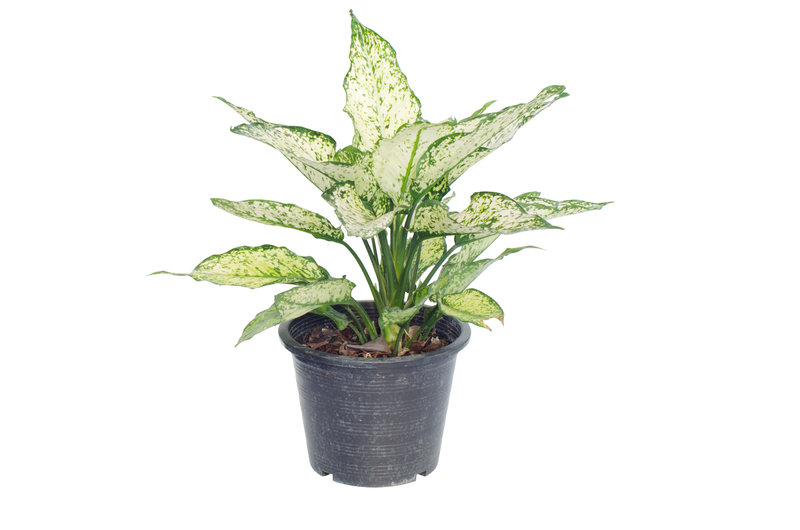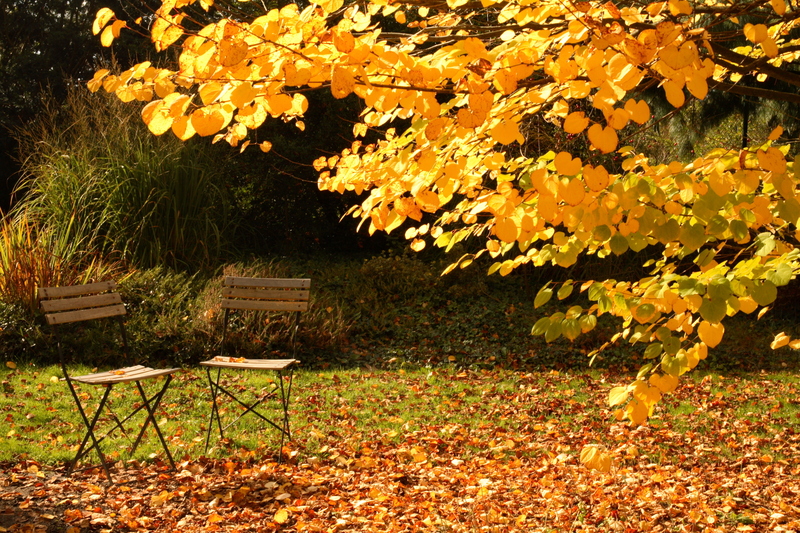Necessary Equipment for Outdoor Gardening Success
Posted on 15/06/2025
Necessary Equipment for Outdoor Gardening Success
Embarking on a journey into outdoor gardening can be an incredibly rewarding experience. Whether you're aiming to grow fresh vegetables, create a stunning floral display, or simply enjoy the tranquility of caring for plants, having the right tools at your disposal can make all the difference between flourishing gardens and time-consuming frustration. In this comprehensive guide, we'll explore the necessary equipment for outdoor gardening success and offer insights to help beginners and experts cultivate their green spaces with confidence.
Why Having the Proper Gardening Tools Matters
Successful outdoor gardening goes beyond seeds and soil. The right equipment ensures that nurturing your garden is efficient, enjoyable, and sustainable. Appropriate tools can help:
- Improve Plant Health by reducing damage to roots and stems.
- Increase Efficiency by making routine tasks easier and faster.
- Reduce Physical Strain by providing ergonomic advantages.
- Ensure Safety by minimizing risks and injury.
If you aspire to outdoor gardening success, understanding and investing in the essential equipment is crucial. Let's delve into the must-have gardening tools every enthusiast should own.

Basic Equipment for Outdoor Gardening
1. Garden Gloves
Gardening can be tough on your hands. With sharp thorns, rough branches, or potentially harmful soil organisms, garden gloves provide vital protection and comfort.
- Choose durable, water-resistant gloves for robust gardening jobs.
- Opt for lighter, flexible gloves for delicate tasks like transplanting seedlings.
With the right gloves, you'll prevent blisters, cuts, and even allergic reactions, empowering you to tackle any task with confidence.
2. Hand Trowel
No toolkit is complete without a high-quality hand trowel. This small, shovel-like instrument is indispensable for:
- Planting bulbs and small plants
- Transplanting seedlings and annuals
- Scooping soil, potting mix, or fertilizers
- Weeding confined spaces
A trowel with a strong, rust-resistant blade and an ergonomic handle will serve you well for years.
3. Pruning Shears (Secateurs)
Healthy plants thrive with the right pruning. Pruning shears are essential for trimming dead or overgrown stems and encouraging robust growth. Consider the following:
- Bypass pruners for live green plants and stems
- Anvil pruners for deadwood or dry branches
- Look for replaceable blade options for longevity
High-quality pruners improve your plants' appearance while preventing the spread of disease.
Essential Tools for Outdoor Gardening Success
4. Spade or Shovel
Digging, turning soil, and moving compost are easier with a robust garden spade or shovel. Ensure you have:
- Square-bladed spades for edging and trenching
- Rounded shovels for digging holes or lifting loose materials
Look for long-handled options for increased leverage and less strain on your back.
5. Garden Hoe
For weed control and soil cultivation, a garden hoe is a time-tested favorite. Among the different types:
- Draw hoes for breaking up and shaping soil
- Stirrup hoes for slicing through weeds with minimal disturbance
A sturdy hoe saves your plants from invasive weeds, keeping your beds and borders in peak health.
6. Rake
No matter your garden's size, a rake is invaluable for gathering leaves, spreading mulch, and leveling soil. Consider:
- Leaf rakes with flexible tines for collecting debris
- Bowed garden rakes for working heavier materials like gravel or clay
Choose lightweight yet durable materials to make frequent tasks easier and faster.
7. Watering Equipment
Consistent watering is critical for outdoor gardening. Equip your garden with:
- Watering cans for precise, gentle watering
- Garden hoses with adjustable nozzles for broader coverage
- Soaker hoses or drip irrigation systems for water-efficient, automated gardening
Your watering method should align with garden size, plant type, and local climate conditions.
Additional Equipment for Outdoor Gardening Success
8. Wheelbarrow or Garden Cart
Hauling soil, mulch, compost, plants, or harvested produce by hand can be backbreaking. A sturdy wheelbarrow or garden cart makes transporting heavy loads easier, improving efficiency and reducing injury risks.
9. Garden Fork
For breaking up compacted soil and integrating organic matter, a garden fork is ideal. Its sturdy tines penetrate stubborn earth, aerate beds, and help incorporate soil amendments for better root development.
10. Kneeling Pad or Garden Kneeler
Long hours on your knees while planting or weeding can cause discomfort. A thick kneeling pad or adjustable garden kneeler protects joints and provides comfort, letting you focus on your plants instead of aches and pains.
11. Garden String and Stakes
Maintaining straight rows, supporting climbing plants, or protecting delicate stems is easier with garden string and stakes. They organize your garden space, prevent plant damage, and enhance your overall harvest.
Modern Advancements in Outdoor Gardening Equipment
12. Soil Testing Kits
Soil health is the foundation of successful outdoor gardening. Modern soil testing kits enable you to quickly assess pH levels and nutrient content, allowing tailored fertilization and amendments.
13. Plant Labels and Markers
Organizational tools like plant labels and waterproof markers are invaluable for remembering what you've planted where, tracking variety success, and planning crop rotations season after season.
14. Protective Gear
- Sun hats and sunscreen to guard against UV exposure
- Knee pads for extra comfort
- Protective eyewear when trimming or mowing
Never underestimate the importance of keeping yourself healthy and safe as you work outdoors.
Optional and Season-Specific Equipment for Outdoor Gardening Success
15. Compost Bin or Tumbler
For eco-conscious gardeners, a compost bin or tumbler turns kitchen scraps and garden waste into rich, organic fertilizer. Compost improves soil structure and provides nutrients to help your plants thrive.
16. Garden Sprayers
Applying liquid fertilizers, foliar feeds, or natural pesticides is simpler with a garden sprayer. Handheld or backpack sprayers help you distribute materials evenly and efficiently over larger spaces.
17. Cold Frames and Row Covers
For those looking to extend their growing season, cold frames, cloches, and row covers protect young plants from frost and harsh weather, giving you a head start in spring or a prolonged autumn harvest.
Caring for Your Outdoor Gardening Equipment
Extending the lifespan of your investment is as important as selecting the right gear. Here are some simple care tips:
- Clean tools after each use to prevent disease transmission
- Sharpen blades regularly for clean, effortless cuts
- Oil wooden handles and metal parts to prevent cracking and rust
- Store equipment in a dry, sheltered area away from the elements
Well-maintained tools perform better, last longer, and make every gardening season more enjoyable.
Tips for Choosing the Best Outdoor Gardening Tools
- Invest in quality, not quantity. High-grade tools may have a higher upfront cost, but they are comfortable to use and last longer.
- Consider your garden's specific needs. Large plots may require more robust or powered tools, while container gardens need smaller, more nimble equipment.
- Test handles for comfort - ergonomic, non-slip handles reduce fatigue during prolonged use.
- Check for warranties or satisfaction guarantees for peace of mind.

Frequently Asked Questions: Outdoor Gardening Equipment
What basic tools should beginners prioritize for gardening success?
New gardeners should start with core items: gloves, trowel, watering can or hose, pruning shears, spade, and rake. These are sufficient to maintain most garden beds, borders, and containers.
How do I store my gardening equipment for maximum longevity?
Keep tools clean, dry, and rust-free. Use a tool rack, wall hooks, or a dedicated shed. Store sharp items safely and regularly oil moving parts.
Are there any specialized tools for vegetable gardening?
Yes--row markers, harvest baskets, and seed planters are especially helpful for vegetable gardens. Drip irrigation and garden forks are also commonly used among veggie growers for healthy soil and crops.
Can I use hand tools for larger garden areas?
While hand tools are versatile, larger areas may require powered equipment such as rototillers, powered sprayers, or rechargeable hedge trimmers for efficiency and time saving.
Conclusion: Building Your Path to Outdoor Gardening Success
Outdoor gardening is both a science and an art. With the right gardening equipment for outdoor success, you set the stage for bountiful harvests, vibrant blooms, and satisfying days spent among your plants. From protective gloves and reliable hand tools to innovative watering and soil testing systems, the correct gear enables gardeners to work smarter, safer, and with greater joy. Whether you are a weekend hobbyist or a dedicated horticulturist, investing in the essential gardening equipment for outdoor projects will maximize your results, minimize frustration, and foster a lifelong love for the natural world.
Ready to cultivate your outdoor paradise? Gather the necessary gardening tools, care for them well, and watch your garden--and your gardening skills--flourish for years to come.

